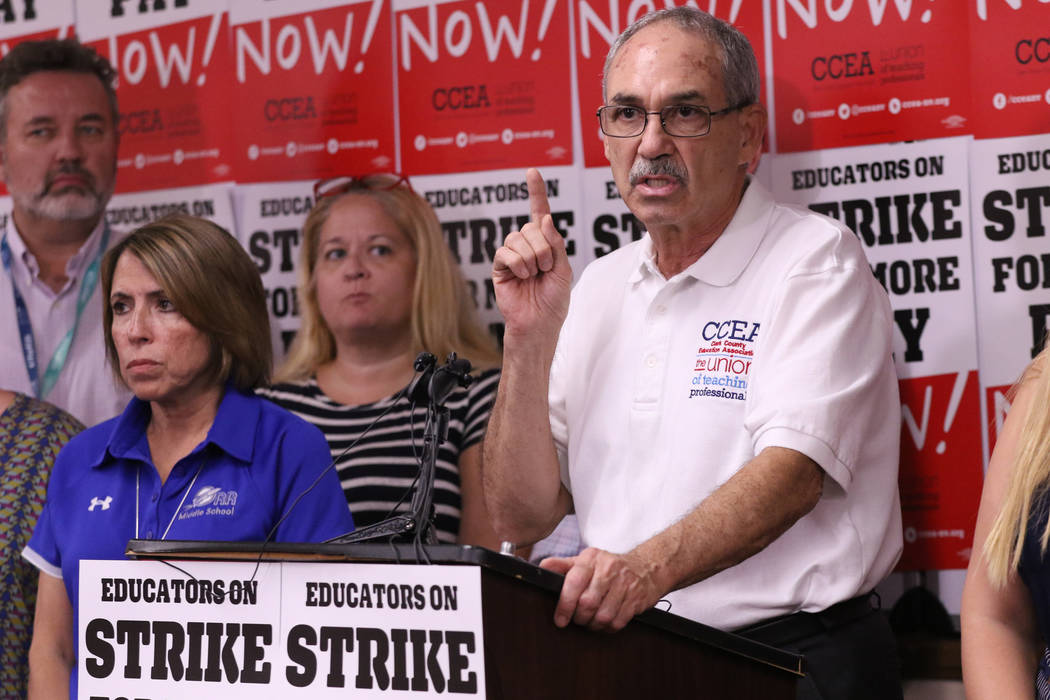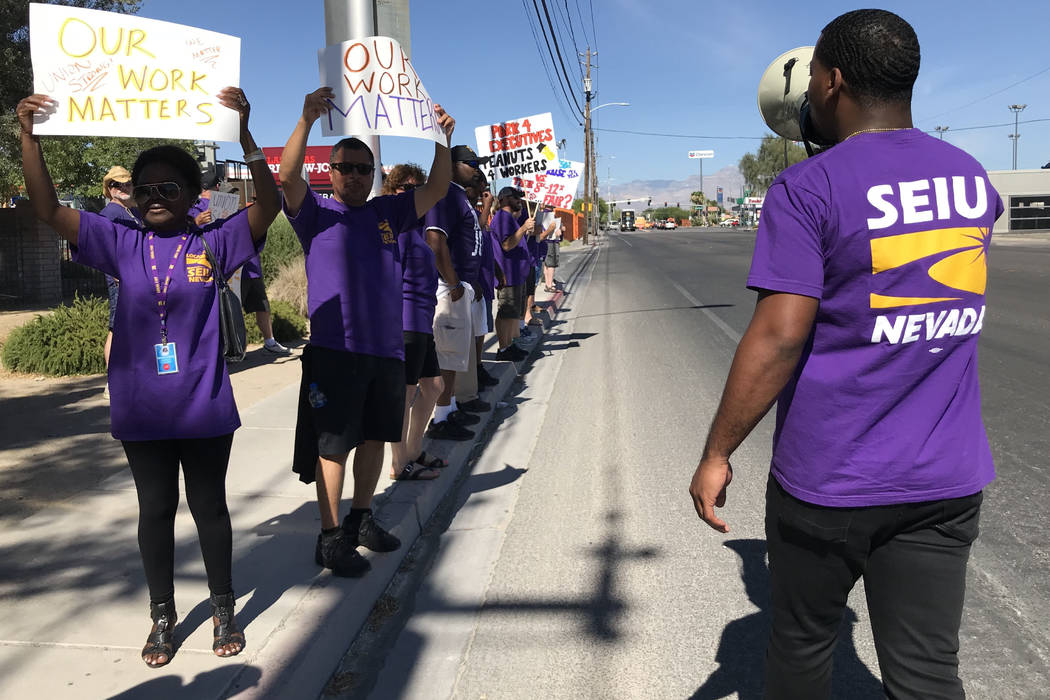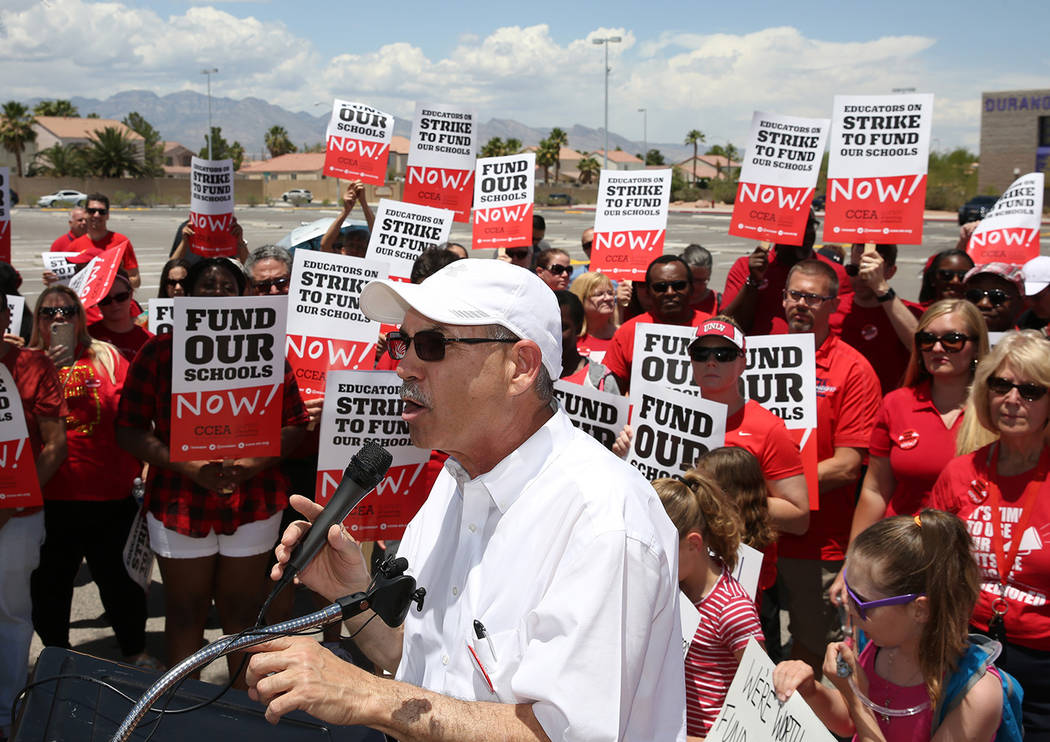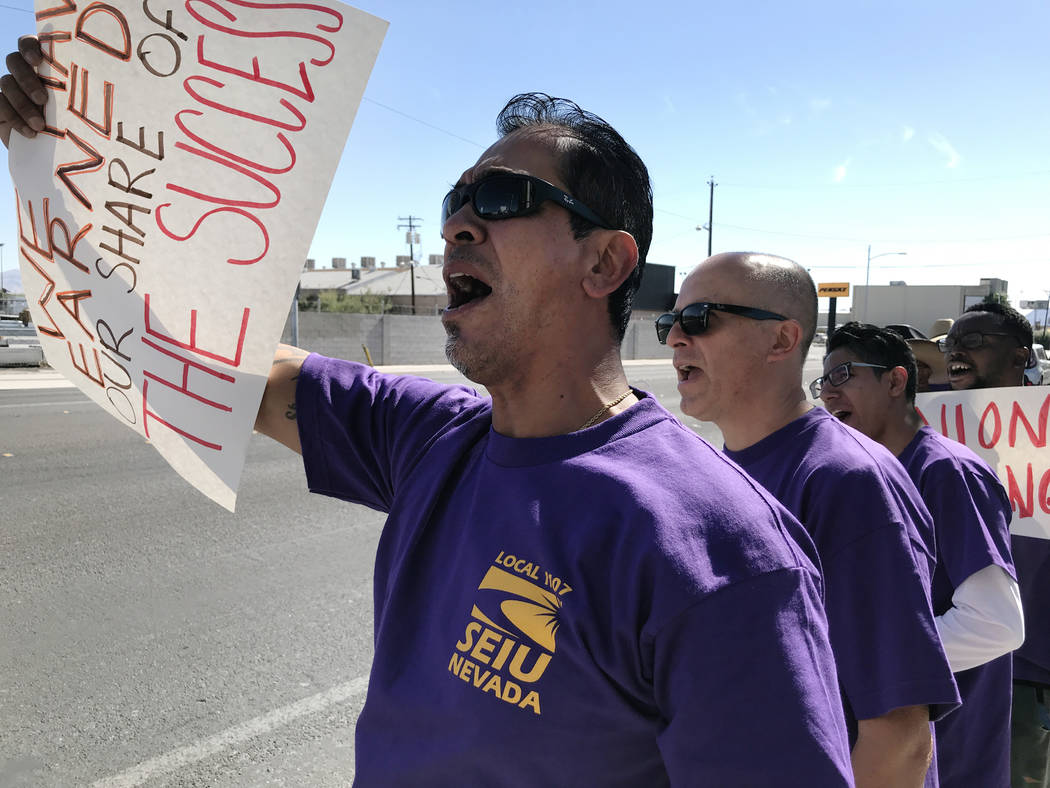VICTOR JOECKS: Not many union members left to celebrate Labor Day
When it became a national holiday 125 years ago, Labor Day was tangible evidence of rising union power. Today, it’d be more appropriate to call it Labor Union Remembrance Day.
Union membership in the United States approached 35 percent in the mid-1940s. Today, union membership has fallen to 10.5 percent, according to the Bureau of Labor Statistics. There’s been a substantial drop-off in private-sector union membership, which now stands at 6.4 percent. Public-sector union membership is 34 percent. In the private sector, there are 7.6 million union members, compared to 7.4 million union members who work for government.
To understand why private-sector union membership is shrinking, look at what happened last week in the Clark County School District. The district and the Clark County Education Association had been fighting over paying teachers extra for completing classes and professional development requirements. The district ended up capitulating. Leave aside the still unanswered questions of how the district can afford those raises.
One of Superintendent Jesus Jara’s concerns is that there’s little correlation between the current Professional Development System and student achievement. Teachers need to earn 225 credits, which equates to 675 hours of extra activities, to advance a column on the pay scale. Teachers can earn credits for coaching, serving on a school organizational team, taking academic trips, writing grants and teaching summer school.
Those are all fine activities. There’s precious little evidence they increase teacher quality. This was true when the district paid teachers more for getting master’s degrees as well.
“The fact that teachers with master’s degrees are no more effective in the classroom, on average, than their colleagues without advanced degrees is one of the most consistent findings in education research,” Matthew Chingos, a senior fellow with the Urban Institute, wrote in a piece published by the liberal Brookings Institute.
Merit pay ‘dead on arrival’
To his credit, Jara wants to reform the current system and link higher teacher pay with improved performance. The union isn’t interested. CCEA Executive Director John Vellardita said any sort of merit pay plan “would be dead on arrival.”
That attitude highlights why private-sector union membership is shrinking. Companies that pay workers more for doing things that don’t boost productivity are at a greater risk of bankruptcy. Over the long term, its best workers will leave if they aren’t rewarded appropriately for being more productive. The company will be stuck paying less-productive employees more to jump through hoops that don’t increase performance. In government, Democrats and union bosses will offer the budget shortfalls caused by these inefficiencies as proof that the school system is underfunded.
A private company can’t do that. If it’s out of cash, it can’t raise taxes. Also, if the product it produces is terrible, its customers will select an alternative. Unfortunately, students stuck in the public school system have only limited opportunities to attend charter or private schools.
If you need more proof that labor unions hurt productivity, look at Sen. Bernie Sanders, I-Vt. Sanders is a vocal supporter of every union in the country, except for the one that represents the workers on his presidential campaign. Earlier this summer, the union representing workers on his presidential campaign complained publicly that they weren’t being paid $15 an hour or overtime. Someone who appears to be one of his former staffers even filed a complaint with the National Labor Relations Board. The individual accused the Sanders campaign of firing employees for engaging in union activities. He may not become president, but he’ll always be a union buster.
Union hypocrisy
Sanders isn’t the only hypocrite in the labor movement. The SEIU is one of the most radical unions in the country. It has backed the “Fight for $15” movement that’s led many states to raise their minimum wages. The workers at its Washington, D.C., headquarters are unionized. That’s no surprise, but the SEIU’s response to those workers should be.
“Unfortunately, what SEIU tells the public and its members about union values contrasts sharply to its behavior toward its union workers,” David Hoskins, chief shop steward of the union members who work at SEIU’s headquarters, said in March. “At our office, SEIU bosses have engaged in a prolonged union-busting campaign, even while bargaining a collective agreement with its union staff.”
Then there’s the outright corruption. Last week, the FBI raided the homes of United Auto Workers President Gary Jones and other union leaders. The raid is likely part of a four-year investigation into bribes and kickbacks paid by auto executives to union leaders in a bid to shape negotiations. Eight individuals have already gone to jail. That number is likely to grow. One of Jones’ neighbors used binoculars to see what was happening. He told the Detroit Free Press he saw agents going through “wads” of cash in the garage.
Despite these problems, the prominence of government unions means the labor movement won’t disappear anytime soon. Nevada is a rare bright spot of the union movement, too. Gov. Steve Sisolak granted state workers the ability to collectively bargain last session. The Culinary union is very strong here as well.
But what’s happened in Nevada is an outlier. If the labor movement wants to regain its former strength, it needs to figure out a way to add value to employees and their employers.
Victor Joecks’ column appears in the Opinion section each Sunday, Wednesday and Friday. Listen to him discuss his columns each Monday at 10 a.m. with Kevin Wall on 790 Talk Now. Contact him at vjoecks@reviewjournal.com or 702-383-4698. Follow @victorjoecks on Twitter.





















